Selecting the right collar for your canine companion is a decision that holds more significance than you might realize. But, the question of whether are thicker collars better for dogs. So, the thicker collar offers certain advantages, such as distributing pressure more evenly, there are other crucial factors to consider, including the dog’s size, breed, and individual needs.
But, are thicker collars truly better for dogs? So, In this blog post, we will discuss are thicker collars better for dogs, the benefits and drawbacks of thicker collars, and provide a guide to finding the right dog thick collars.
Are Thicker Collars Better For Dogs?
Thicker collars are generally more durable and can withstand more force, which can be beneficial for larger and stronger dogs, as well as dogs that tend to pull on the leash during walks.
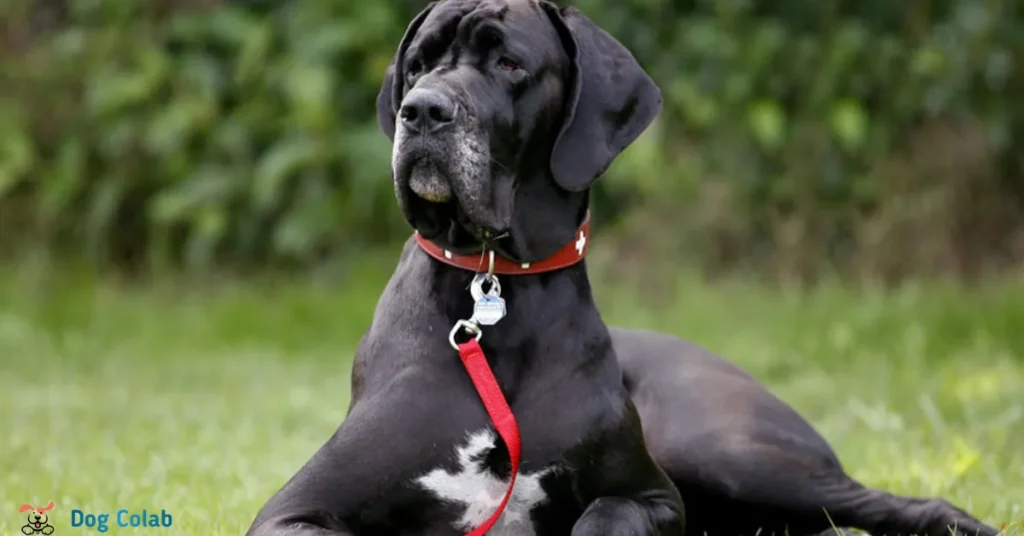
They may also provide more comfort and distribute pressure more evenly across the dog’s neck, reducing the risk of discomfort or injury.
However, it’s important to note that thicker collars are not universally better for all dogs. For smaller or more sensitive breeds, a thick collar might be overly bulky and uncomfortable. Additionally, dogs with skin sensitivities or neck-related issues might find a thick collar exacerbating their problems.
Why Do Dogs Have Thick Collars?
Dogs may have thick collars for several reasons, each serving specific purposes related to their well-being, safety, and training.
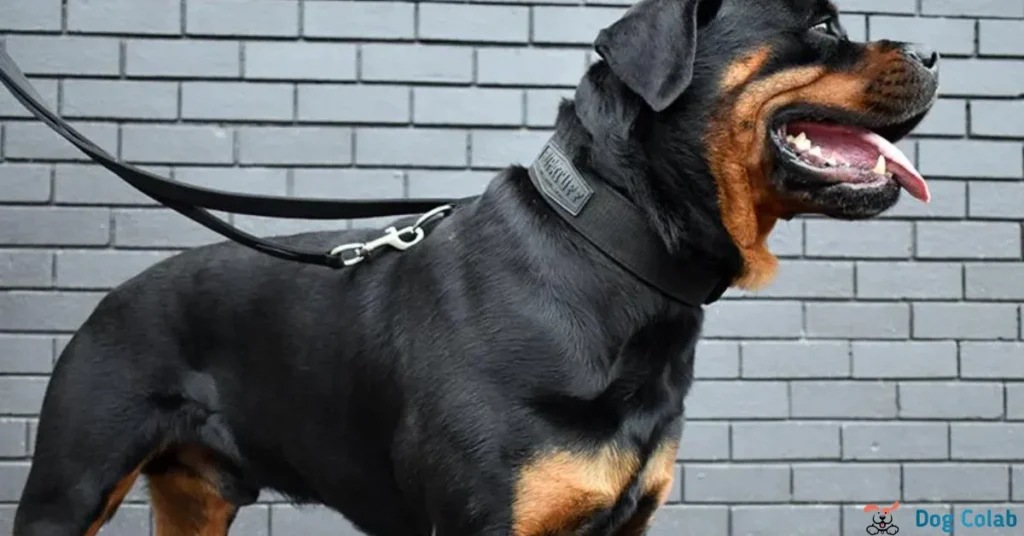
1. Comfort and Durability
Thicker collars are often made with robust materials that can withstand wear and tear. This durability ensures that the collar remains intact even during rough play, outdoor activities, or potential encounters with other animals. Additionally, a well-padded, thicker collar can enhance a dog’s comfort, preventing chafing and irritation that can occur with thinner or rougher materials.
2. Even Pressure Distribution
Thicker collars can distribute pressure more evenly across a dog’s neck, which can be particularly beneficial during walks or training sessions. This feature helps avoid concentrated pressure on one specific point, reducing the risk of injury or discomfort, especially for dogs prone to tracheal issues or those dogs who pull on the leash.
3. Identification and Safety
A thicker collar can accommodate larger and more visible identification tags. Identification is crucial for ensuring a lost dog can be quickly identified and returned to its owner.
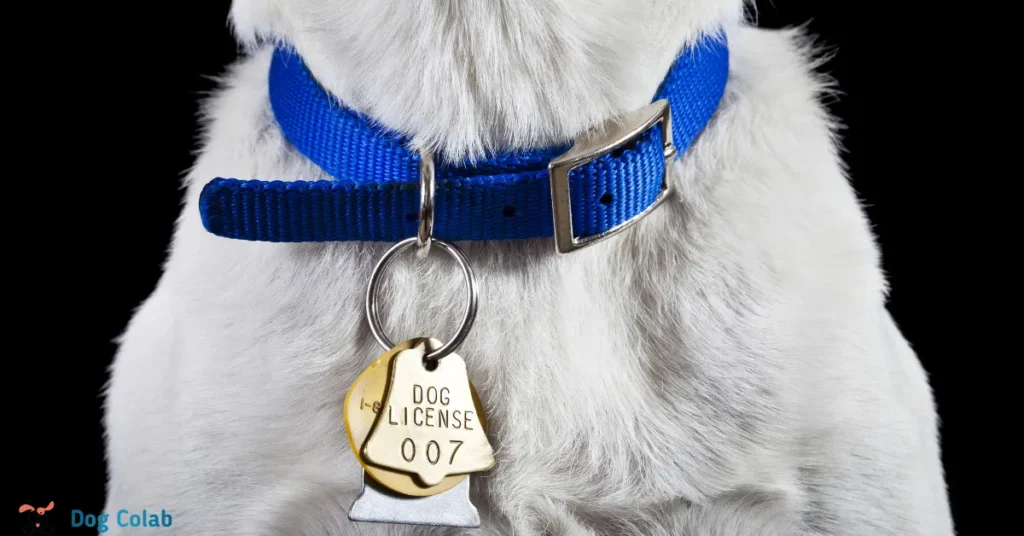
The thickness of the collar allows for larger tags that might include the dog’s name, contact information, and even medical details.
4. Training and Control
Thicker collars can provide better control during training sessions. For dogs that require extra guidance or have strong pulling tendencies, a thicker collar offers a sturdy anchor for leash attachment. This can aid in teaching commands, discouraging unwanted behaviors, and enhancing the overall training experience.
5. Attachment Points
Some thicker collars are designed with multiple attachment points, such as D-rings or loops. These additional points can accommodate accessories like training aids, reflectors, or lights, enhancing visibility during nighttime walks and activities.
6. Breed and Size Considerations
Larger or stronger dog breeds might benefit from thicker collars due to their higher muscle mass and potential for exerting more force. Thicker collars can provide better control over such dogs, making walks and interactions safer for the dog and its owner.
Read More:- Get rid of dog collar marks.
Pros And Cons of Dog Thick Collars
Certainly, here are the pros and cons of using thicker collars for dogs

Pros
- Durability: Thicker collars are often made with more robust materials that increase their overall durability and lifespan. This is especially advantageous for active dogs engaged in outdoor activities.
- Even Pressure Distribution: The added thickness of the collar helps distribute pressure more evenly across the neck and reduces the risk of discomfort, irritation, or injury, particularly during leash walks and training sessions.
- Better Control: Thicker collars can provide better control over dogs, especially those with a tendency to pull or exhibit dog unruly behavior. This enhanced control aids in training and ensures the safety of both the dog and the owner.
- Accommodates Identification: The greater surface area of a thicker collar allows for larger identification tags, making it easier to include essential information such as the dog’s name, owner’s contact details, and medical information.
- Training Support: Thicker collars are suitable for attaching training aids and tools, which can assist in teaching commands and behaviors effectively.
Cons
- Weight and Bulkiness: Thicker collars can be bulkier and heavier, potentially causing discomfort for smaller or more delicate breeds. Dogs might feel restricted or hesitant to move freely.
- Heat Retention: In warmer climates, thicker collars might retain more heat leading to discomfort and potential overheating, especially for breeds prone to heat-related issues.
- Potential for Chafing: While intended to provide comfort, poorly designed or improperly fitted thicker collars can still cause chafing and irritation, particularly if the materials are not soft or breathable.
- Respiratory Concerns: Dogs with existing respiratory issues might find thicker collars constricting, affecting their ability to breathe comfortably. During physical activity, this can be especially problematic.
- Cost: Thicker collars with durable materials and additional features can be more expensive than thinner options, which might only be feasible for some dog owners.
Recommended Also Read:- How many collars should a dog have.
What Kind of Dogs Wears Thick Collars?
Thick collars are commonly worn by dogs that possess certain characteristics or engage in specific activities that benefit from the sturdiness and durability of such collars. These characteristics include size, strength, and behavior.

Larger and stronger dog breeds, such as Mastiffs, Rottweilers, and Bulldogs, are often outfitted with thicker collars. These dogs can exert a significant amount of force when pulling on a leash or engaging in activities like agility training or working tasks, so thicker collars can provide better control and safety.
Working dogs, such as police or service dogs, might also wear thicker collars as they are often involved in physically demanding tasks where a strong collar is essential.
However, it’s crucial to emphasize that the appropriateness of a thick collar depends not only on the dog’s size and strength but also on their individual needs and comfort. Just because a dog is large doesn’t necessarily mean they require a thick collar, and some large dogs may actually do better with thinner, more comfortable collars.
You may also be interested in:- Why dog breaking his collar.
How Thick Should A Dog Collar Be?
The thickness of a dog collar can vary depending on the size, breed, and individual needs of the dog. There is no one-size-fits-all answer to how thick should a dog collar be, but here are some general guidelines to consider.
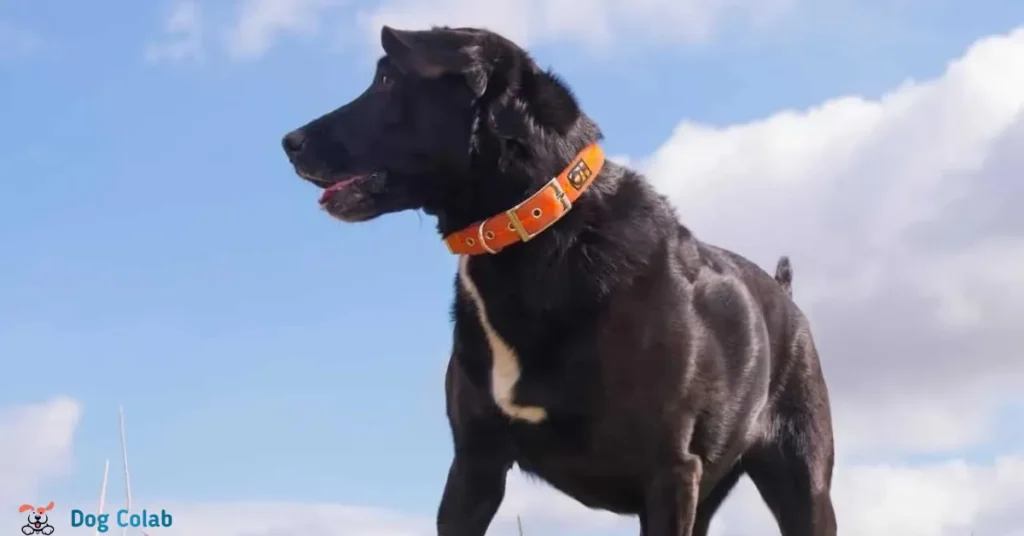
- Small to Medium-sized Dogs: For small to medium-sized dogs, a collar width of around 1/2 to 1 inch (1.3 to 2.5 cm) is often suitable. This width provides enough durability and control without being overly bulky or uncomfortable for the dog.
- Large and Strong Dogs: Larger and stronger breeds, such as Mastiffs, Rottweilers, or Bulldogs, might benefit from thicker collars. Collars with a width of 1 to 1.5 inches (2.5 to 3.8 cm) can offer better control and distribute pressure more effectively.
- Working Dogs: Dogs that are involved in working activities, such as police or service dogs, might require even thicker collars to support the equipment they carry. Collars in the range of 1.5 to 2 inches (3.8 to 5.1 cm) can be appropriate for these situations.
You might also want to know about:- How tight should a collar be.
Things You Should Know For Choosing the Thicker Dog Collar
Choosing a thick collars for dogs involves considering several important factors to ensure the comfort, safety, and control of your furry companion. Here are some things to know when selecting a thick collars.
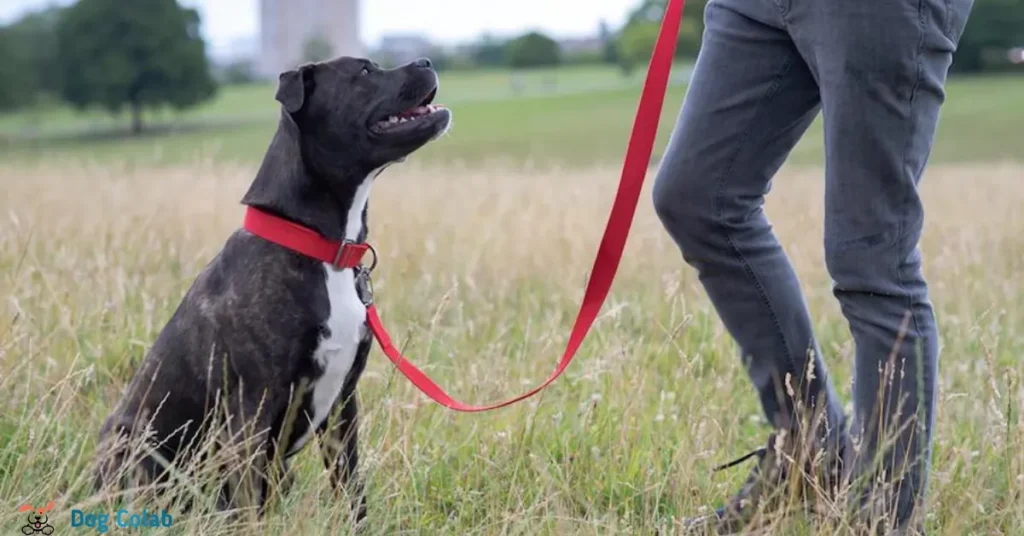
1. Dog’s Size and Breed
The size and breed of your dog play a significant role in determining the appropriate collar thickness. Larger and stronger breeds generally benefit from thicker collars to provide better control and distribute pressure more effectively.
2. Collar Material
Thicker collars are often made from sturdy materials like leather, nylon, or synthetic materials. Choose a collar material that is comfortable for your dog and suits its specific needs. Leather is durable and can soften over time, while nylon is lightweight and easy to clean.
3. Closure Type
Collars can have various closure types such as buckles, quick-release snaps, or martingale-style closures. Choose a closure that is secure and easy for you to use while keeping your dog’s safety in mind.
4. Durability
Thicker collars are often chosen for their durability, especially for dogs engaged in activities like tracking, protection, or working tasks. Choose a collar that can withstand the intended usage.
Conclusion “Are Thicker Collars Better For Dogs”
Thicker collars can offer advantages for certain dogs, particularly larger and stronger breeds or those engaged in active activities. Their sturdiness can enhance control and distribute pressure more effectively, promoting safety.
However, the suitability of dog thick collars depends on individual factors such as breed, size, behavior, and comfort. It’s essential to find a balance between control and the dog’s well-being, ensuring the collar is properly fitted and doesn’t cause discomfort or irritation.
NOTE:- More information can be found by clicking this link.
FAQs
1. Are wide collars better for dogs?
Wide collars can be better for larger or stronger dogs, offering enhanced control and pressure distribution. However, suitability depends on the individual dog’s size, breed, and comfort.
2. Are weighted collars good for dogs?
Weighted collars are generally not recommended for dogs. They can cause discomfort, potential injury, and negative behavioral effects.
3. What is the difference between thick and thin dog collars?
The main difference between thick and thin dog collars lies in their width. Thicker collars are sturdier and offer better control, making them suitable for larger, stronger dogs and active activities. Thinner collars are lightweight and may be more comfortable for smaller or more sensitive breeds.
4. Does collar size matter?
Yes, collar size matters. A properly fitted collar ensures comfort and prevents discomfort or injury. It should allow two fingers to fit snugly between the collar and the dog’s neck.
5. What width collar is best for my dog?
The best width collar for your dog depends on its size, breed, and behavior. Generally, small to medium dogs do well with 1/2 to 1-inch widths, while larger or stronger dogs may benefit from 1 to 1.5-inch widths.

